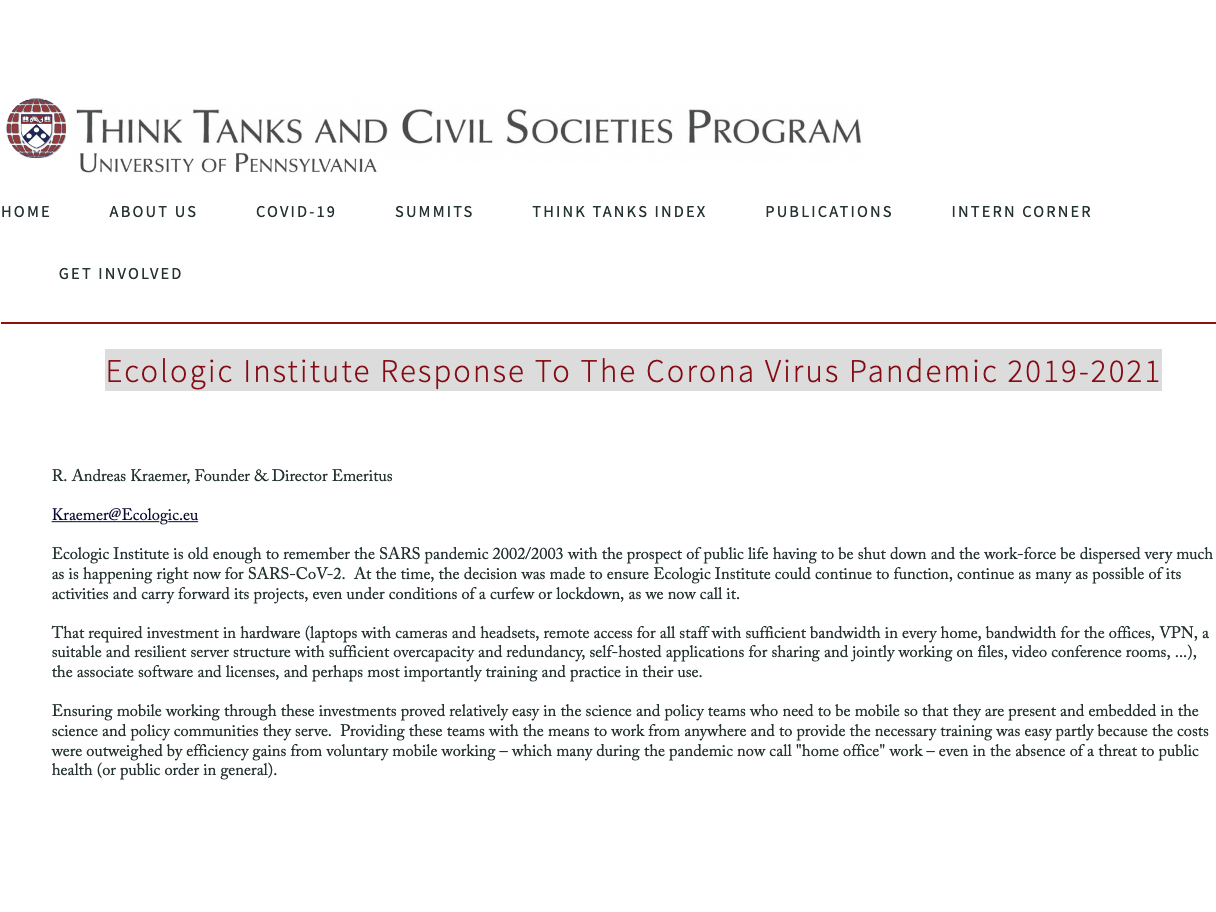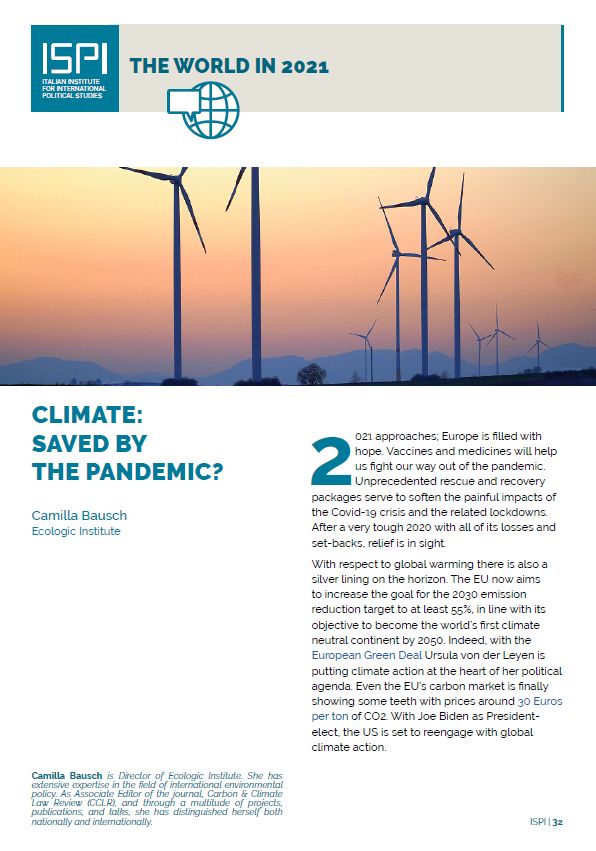Sustainable Solutions for the Global South in a Post-Pandemic World
- Publication
- Citation
Institute for Advanced Sustainability Studies (IASS) (2021): Sustainable Solutions for the Global South in a Post-Pandemic World. Potsdam, Germany: IASS Study.
The global COVID-19 pandemic has highlighted profound inequalities and vulnerabilities across the Global South, particularly in areas such as energy access, urban resilience, and environmental governance. Contributors to the IASS study analyzed challenges and potential pathways toward sustainable recovery, emphasizing the role of renewable energy, urban planning, and climate-smart economic strategies. The pandemic exposed systemic fragilities, demonstrating the urgent need for holistic, integrated approaches to development that address economic, environmental, and social dimensions simultaneously.
Renewable Energy: A Pillar of Sustainable Recovery
Renewable energy emerged as a critical sector for building resilience in the face of overlapping crises. Investment in distributed energy systems, such as off-grid solar and wind technologies, can provide reliable power to rural areas while reducing greenhouse gas emissions. For countries like Nigeria and Argentina, aligning recovery measures with climate commitments offers opportunities to create jobs, bolster energy security, and foster equitable economic growth. However, challenges remain, such as funding access and the dominance of fossil fuel industries in these economies.
Strengthening Urban Resilience
Urban centers across the Global South face compounded pressures from rapid urbanization, inadequate infrastructure, and the pandemic’s socio-economic impacts. The IASS study highlights the importance of integrating nature-based solutions, such as green spaces and improved water management, to enhance urban resilience. Collaborative governance frameworks are also crucial, enabling cities to align local initiatives with national climate goals. Sustainable urban strategies must prioritize marginalized communities to ensure inclusivity and long-term resilience.
Towards a Holistic Recovery
Achieving a sustainable post-pandemic recovery requires a systemic shift in policy and practice. From fostering international cooperation in waste management to embedding climate goals in economic stimulus packages, the IASS study underscores the importance of innovative, cross-sectoral strategies. Green recovery initiatives not only mitigate the effects of climate change but also provide a blueprint for more equitable and resilient societies.

